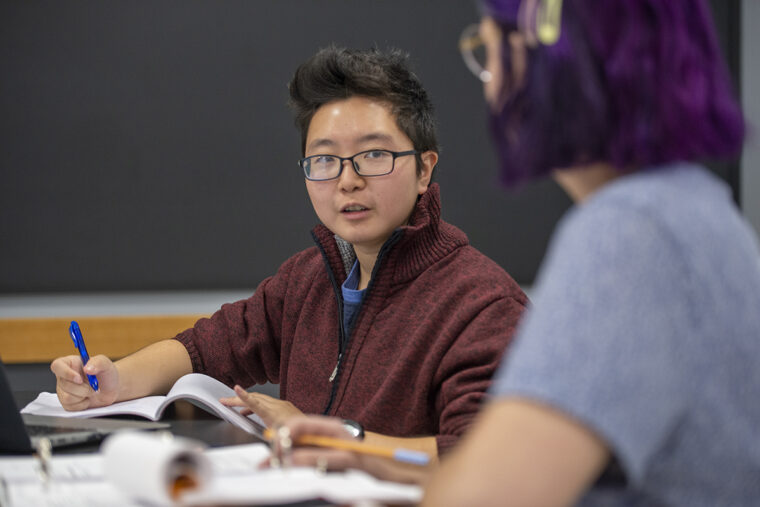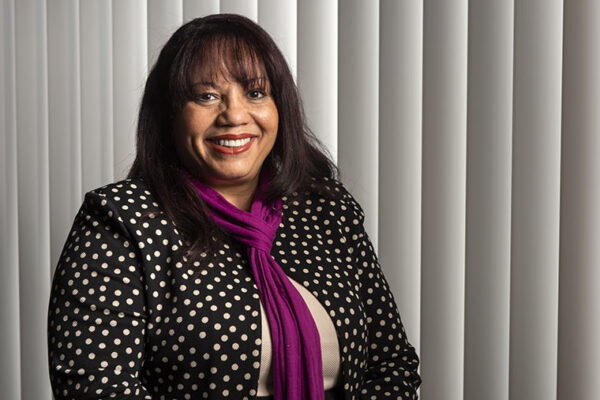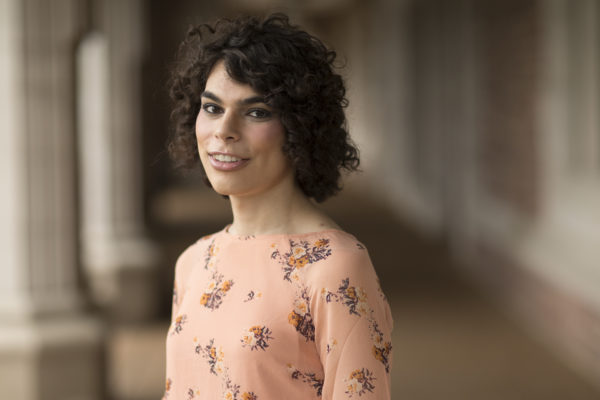Washington University in St. Louis senior Luka Cai is a transmasculine, pansexual, queer person. But as a teenager in Singapore, Cai did not have that vocabulary; they only knew they had no interest in dating boys.
“That was my understanding of the idea of queer,” said Cai, who uses they/them pronouns. “The first time I came out to a trusted adult was in high school. When I told my teacher who I thought I was, she said, ‘I don’t judge you, but I think it’s wrong, unnatural and sinful.’ Back then, my world consisted entirely of my friends, my parents and my teachers. And so that really set me back. I often wonder, ‘What if I had a peer to tell me that it’s OK to be myself?’”
Today, Cai and the volunteers of SQSH, the St. Louis Queer + Support Helpline, are that someone. They provide free, confidential and identity-affirming support, resources and referrals to members of St. Louis’ LGBTQIA+ community.
“This is the resource I always wished I had,” Cai said. “A lot of people feel that they must clear a high bar to call a helpline, or (they think) ‘My problem isn’t serious enough. I don’t want to take up someone’s time.’ But we’re here for anyone who wants to talk.”
Cai and co-founder Riott, a student at the Brown School, will receive a Holobaugh Honor for SQSH at the annual James M. Holobaugh Honors Ceremony at 6 p.m. Monday, Nov. 11, in Umrath Hall Lounge. The honors celebrate Washington University students, staff, faculty and St. Louisans who serve and support the LGBTQIA+ community.
Cai first connected to the broader St. Louis community through the student group Pride Alliance. As co-programming chair, Cai invited local LGBTQIA+ leaders to visit campus. Students enjoyed hearing from outside speakers, and speakers appreciated the opportunity to share their stories. Still, Cai couldn’t shake the sense that the group’s relationship with St. Louis’ queer community was inherently, if unintentionally, exploitative.
“It kind of felt like we were always saying, ‘Teach us, serve us, entertain us,’” said Cai, who is majoring in political science in Arts & Sciences. “It made me ask, ‘What is my obligation to break out of the WashU bubble?’ That’s when I started to get out there. I would see drag performers and support community events and businesses and meet queer artists and advocates and social service providers. I found an incredible network of people supporting one another. I wanted to do my part.”
As a Gephardt Institute Civic Scholar, Cai had $5,000 to fund a major community initiative. Having observed the success of Washington University’s two peer-based helplines, Uncle Joe’s and S.A.R.A.H., Cai believed a similar service could help the region. But when local leaders voiced skepticism, Cai was confused.
“I wondered why people didn’t have faith in my project,” Cai recalled. “But then I understood they didn’t want another do-gooder promising to help the community and then bailing. That’s why, from the very start, we designed this program to be sustainable. Many of our volunteers are St. Louisans. And we ask every volunteer to commit to at least one year on the helpline.”
So far, 14 members have completed the helpline’s rigorous 55-hour training program. Another 14 volunteers are on track to complete training by December. Cai then hopes to expand the helpline’s hours beyond its current schedule of 1 to 5 p.m. Friday through Sunday.
“There is a big benefit to being local,” said Cai, who hopes to remain in St. Louis as a student at the Brown School. “For one, we can provide the most accurate and helpful information. If, for example, a hospital changes its intake policy, we’ll know about that. But there is also a sense of pride. We can help our own community.”



